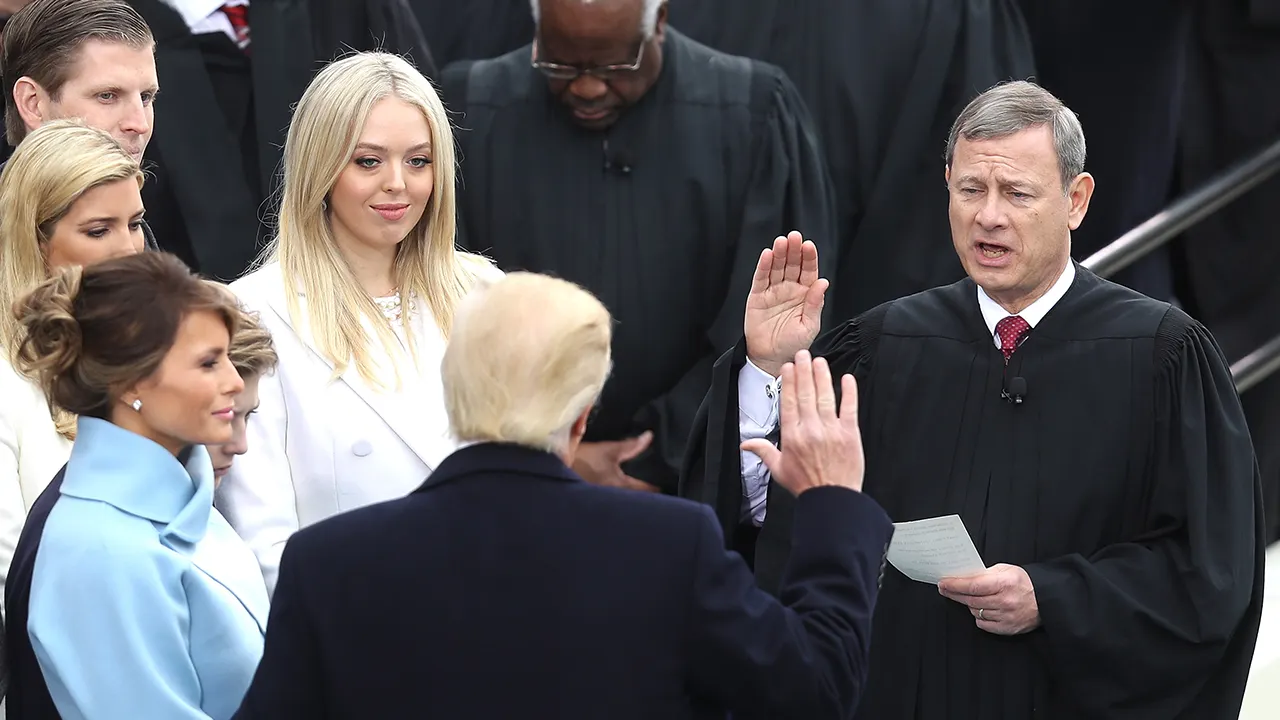Skullcaps, Robes, Bibles: The Supreme Court and the Inauguration

In a rare display of national unity and tradition, the top members of the three branches of government will come together for the presidential and vice-presidential oaths of office at Monday’s inauguration. Chief Justice John Roberts and Justice Brett Kavanaugh will continue the nearly 240-year-old tradition of administering the oaths to President-elect Trump and Vice President-elect JD Vance.
The event is expected to be a cordial and dignified ceremony, with all members of the high court in attendance in their judicial robes. Despite any political differences, the focus will be on the longstanding tradition and the peaceful transfer of power.
The choice of Kavanaugh to administer the oath to Vice President-elect Vance is not surprising, as Vance’s wife, Usha Vance, clerked for Kavanaugh when he was a judge on the U.S. Court of Appeals in Washington. Kavanaugh has been praised for his bipartisan hiring practices and Usha Vance spoke highly of her experience working for him.
While the swearing-in ceremony is usually conducted by the chief justice, a broader mix of officials have handled the vice-presidential duties in the past. Justices Sandra Day O’Connor, Ruth Bader Ginsburg, and Clarence Thomas have performed similar honors in the past.
The ceremony will follow the constitutional requirement for the oath of office, with the exact language laid out in Article VI of the Constitution. The president will place one hand on a Bible and raise the other while reciting the 34-word oath.
Past inaugurations have seen some interesting moments, such as when Chief Justice John Roberts strayed slightly from the text during President Obama’s first swearing-in in 2009, prompting a re-administration of the oath the following day. The use of the phrase “so help me God” has also been a point of contention, with some arguing it violates the constitutional ban on government endorsement of religion.
The justices will be easily identifiable at the ceremony, wearing their black robes and, possibly, their distinctive skullcaps. These skullcaps are a traditional part of their attire and have been worn by justices for many years.
As the nation prepares for this historic event, the focus will be on the peaceful transition of power and the continuation of longstanding traditions that have marked presidential inaugurations for centuries. The ceremony will be a moment of unity and respect for the office of the president and vice president, as well as for the institutions of government that uphold the rule of law in the United States.




